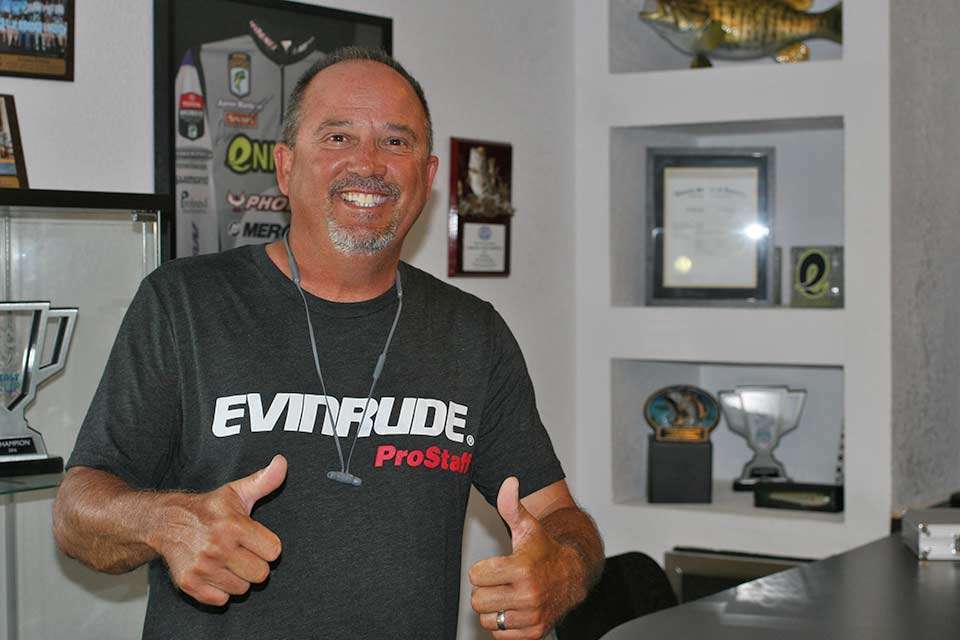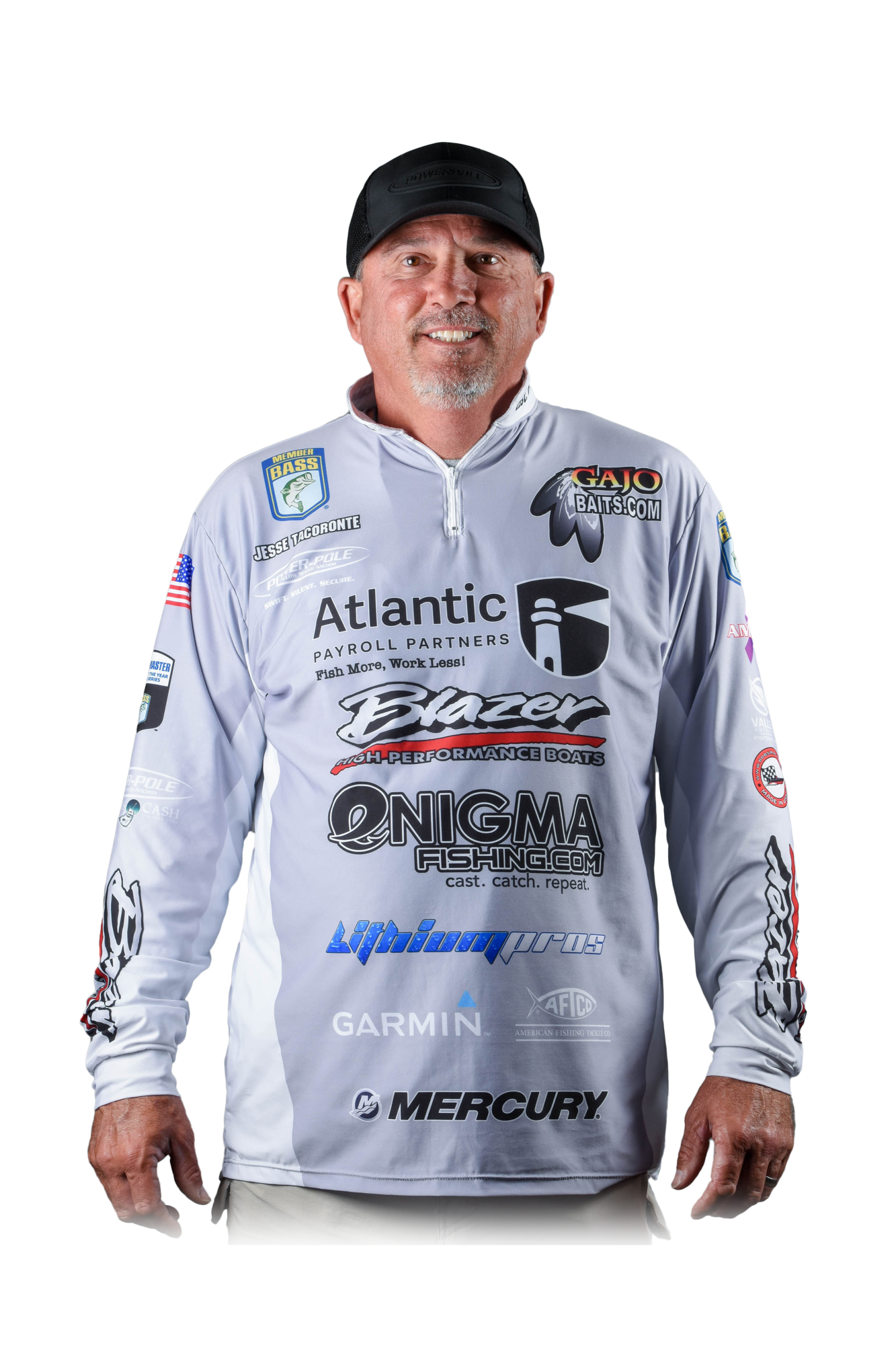
Jesse Tacoronte
Kissimmee, Fla.Qualified via 2019 Elite Series
Many anglers look forward to off time after a long tournament season, with fall hunting providing a break from the on-the-water grind. Me? I don’t hunt. All I care about is catching bass.
So instead of finding diversions, I just keep fishing. That’s what keeps you in practice — staying out there fishing tournaments, even if it’s local tournaments. Competition’s good, I think. It keeps you sharp. So I don’t want to take a break just because the Bassmaster Elite Series season is over.
But I don’t just fish tournaments near my home. In fact, I don’t really want to fish my local waters. What’s more important to me is the diversity of lakes I can fish. My goal is to keep my tournament skills sharp in the offseason, so I take pains to move around the region fishing whatever tournaments I can find,
I take my fall fishing to a different level by intentionally treating them just like Elite Series events. I show up with no more than two days of practice. I don’t pre-fish for any of these events.
Why? It teaches you to fish conditions. I don’t know spots because I haven’t been fishing those lakes for weeks on end, so I have to fish the conditions. Just like an Elite Series event.
Take a recent Winter Haven tournament: I showed up and beat the locals by 5 pounds because I was fishing the conditions. The locals were fishing the spots they always fish, but I didn’t know where those were. I just fished the conditions I found at the lake and won the tournament.
I’ll continue moving around and fishing different lakes in the region, arriving no more than a couple of days early so I can get a handle on the conditions I’ll be facing and put together a pattern. This keeps me on my toes in terms of adjusting to ever-changing conditions.
This is a great approach for any hardcore tournament angler. You just show up and fish, and it really makes you a better fisherman. It makes you adapt.
There are other benefits of fall and winter tournament fishing as well.
First, it offers more time on your electronics. These high-tech pieces of equipment have become vital tools for finding and catching bass on a consistent basis, so I want to continue learning how to tweak these units to get the most out of them.
And that’s even more important when upgrading to the latest and greatest electronics on the market. I use these offseason tournaments to get my new Garmin electronics tuned up and to learn all the nuances of them so I’m prepared to hit the water when the next Elite Series season cranks up.
I also have my new boat broken in and am accustomed to it by the time I begin the long travel season because I’ve spent my offseason working from that platform, making any adjustments necessary. It helps dial everything in before that first official tournament starts.
The bottom line is that I show up to the very first Elite Series event of the new season confident and ready to face whatever nature throws at me. There’s no transition involved, which I think is awesome.
So if you want to remain at the top of your game, don’t fall to the temptation of taking a break after the hectic summer tournament season. Stay on the water, fishing events different lakes throughout the winter with minimum practice.
You’ll find yourself sharper and more attuned to what bass are doing when the tournament circuits really crank up in the spring.

